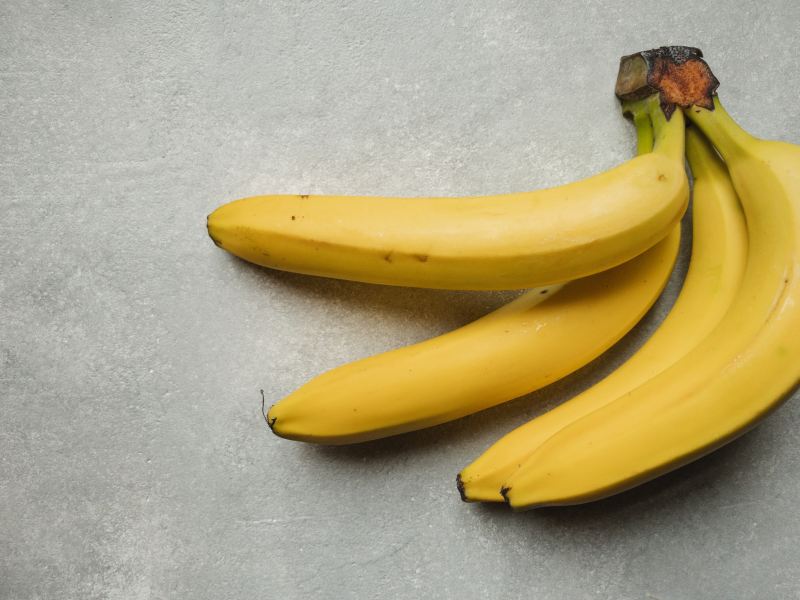Electrolytes play a crucial role in essential bodily processes like hydration, muscle contraction, and regulating pH levels. Calcium, magnesium, and potassium are just some of the important electrolytes your body needs. If your electrolyte levels drop too low, it can be harmful to your health and even fatal in some rare instances. Some people supplement electrolytes, typically in the form of a mineral dropper or powder you mix into your drink.
Certain foods can help you replenish your body and maintain a healthy electrolyte balance. Most people can consume enough electrolytes as part of a balanced diet. Here are the top foods with electrolytes worth eating.
Calcium-rich foods

You know calcium helps you build stronger bones and teeth, but it’s also crucial for muscle movement, hormone release, stable blood pressure, and circulation. Without enough calcium for proper bodily functions, your body will take it from your bones, leaving you with weaker, calcium-deficient bones and a higher risk of injury, low bone mass, and osteoporosis.
Here are some of the top calcium-rich foods:
- Salmon
- Sardines
- Leafy greens, especially collard greens and kale
- Bok choy
- Broccoli
- Beans
- Edamame and tofu
- Certain nuts and seeds, such as almonds and sesame seeds
- Fortified foods
- Yogurt and cheese
Dairy products are an excellent source of calcium. For example, 100 mL of milk provides around 199 mg of calcium, which is 20% of the daily value (DV). Also, 1 ounce of parmesan cheese provides around 336 mg of calcium, which is 33% of the DV.
Potassium

Most of the potassium in your body is found in your cells, and 80% is in your muscle cells. Potassium plays a role in nerve functioning and muscle contraction and protects against kidney stones, stroke, and osteoporosis. Potassium can also reduce blood pressure. Lots of people are deficient in potassium, and you might notice that you get a kick of energy when consuming a food that’s high in potassium, like an avocado or banana.
Here are some of the foods that are highest in potassium:
- Avocado
- Banana
- Clams
- Swiss chard
- Spinach
- Beet greens
- Tomatoes
- Chicken
- Salmon and fish
- Potatoes
- Coconut water
- Milk
Avocados are popular these days for good reason. They aren’t just delicious, creamy, and loaded with healthy plant fats; they also pack a punch of potassium. One standard avocado gives you 660 mg of potassium, which is 22% of the DV. Avocado toast, anyone?
Magnesium

Magnesium helps convert food into energy, strengthen bones and teeth, regulate neurotransmitters, and create and repair DNA. This important mineral also aids the contraction and relaxation of muscles, which is why your muscles probably feel better after a long soak in an Epsom salt bath, where you absorb some of the magnesium from the salts through your skin. Muscle twitches, cramps, and weakness are signs of a magnesium deficiency.
The top food sources of magnesium include:
- Almonds
- Pumpkin seeds
- Dark chocolate
- Spinach
- Chia seeds and sunflower seeds
- Avocados
- Some types of fish, such as salmon, tuna, and halibut
- Brown rice
Indulging in a few squares of dark chocolate provides a nice helping of magnesium with 65 mg in a 1-ounce serving.
Sodium

Sodium helps you maintain fluid balance and allows the muscles of your digestive tract to function properly. Salt has been given a bad rep in recent years, but sodium is an important electrolyte that keeps your nerves and muscles running smoothly. Most people don’t need to replace sodium lost from sweating, but if you exercise more frequently for longer periods or in the heat, you might need to replenish electrolytes and sodium.
Here are some of the best ways to replenish your sodium levels:
- Stay hydrated and drink plenty of water
- Consume bone broth
- Add healthier natural salts to your food, such as Celtic sea salt or pink Himalayan salt
- Eat poultry and meats like chicken and turkey
100 grams of white turkey meat gives you 1,200 mg of sodium, which is 52% of the DV, along with 349 mg of potassium. Most health experts agree it’s best to avoid overeating heavily salted and processed foods and stick to a sprinkling of Celtic sea salt and natural whole foods like turkey.
What are electrolytes exactly?

Electrolytes are negatively or positively charged particles or essential minerals that are key for a multitude of metabolic functions. You have electrolytes in your sweat, urine, and blood. The right balance of electrolytes is vital for the proper functioning of your muscles, nervous system, and more. For example, magnesium and calcium allow your muscle fibers to slide together and move as your muscle shortens and contracts. Electrolytes are also pivotal for bone health and fluid regulation.
What causes an electrolyte imbalance?

Some of the top causes of electrolyte imbalances are:
- Not consuming a healthy, balanced diet with electrolyte-rich foods
- Dehydration from excess heat, vomiting, or diarrhea
- Illnesses, such as kidney disease and eating disorders
- Injuries, such as severe burns
- Overuse of over-the-counter diuretics
- Excess sweating, especially in the heat
- Congestive heart failure
- Some medications like laxatives
What are the symptoms of electrolyte imbalance?

A mild electrolyte imbalance might not prompt any symptoms, but more severe imbalances can cause:
- Tingling and numbness
- Tiredness
- Muscle cramping
- Muscle weakness
- Irregular heartbeat
- Disorientation
- Headaches
If you have concerns about electrolyte imbalance, it’s best to speak to your doctor or healthcare provider. Your doctor can order an electrolyte panel to test your electrolytes.




